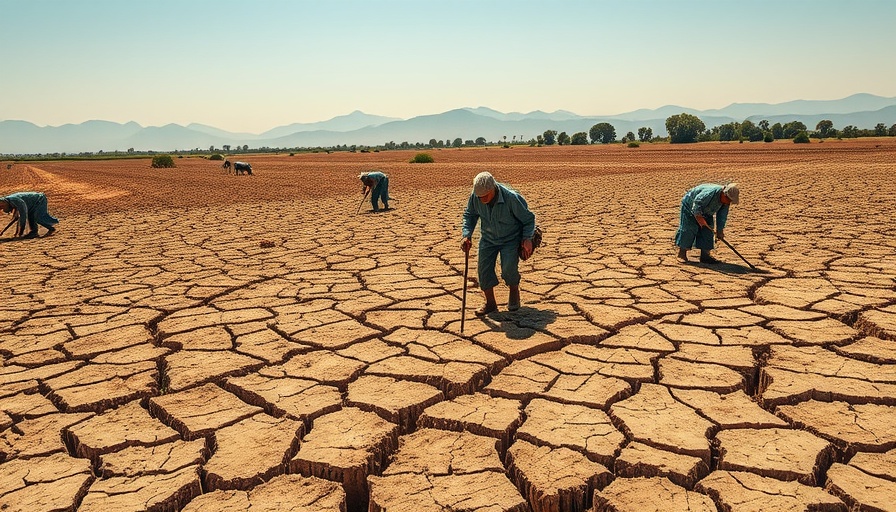
Understanding the Risks to Our Staple Crops
As the world grapples with the escalating impacts of climate change, agriculture stands at the forefront of this challenge, facing unprecedented threats that could jeopardize food security on a global scale. A study published in Nature highlights alarming projections: average global yields of six staple crops—cassava, maize, rice, sorghum, soybeans, and wheat—are expected to drop by over 11% by the end of the century under moderate warming scenarios. This decline persists even when accounting for the adaptive measures that farmers may take.
The Importance of Adaptive Farmer Strategies
Farmers are already bearing the brunt of climate change, witnessing firsthand its deleterious effects through shifting rainfall patterns, prolonged droughts, and severe weather extremes. The researchers of the aforementioned study emphasized that while adaptation could mitigate some losses—potentially reducing the overall yield decline by about 12%—the damages will still be considerable. Adaptation includes implementing practices like switching crop varieties or optimizing irrigation systems, yet these strategies are often seen as only ‘partially protective’, indicating that complete restoration of yields is not feasible.
Global Disparities in Farming Resilience
Interestingly, the research brings to light a disparity in adaptive capacities between wealthier farming regions, such as the US and Europe, and poorer areas, where agriculture is more resilient due to necessity. In developed regions where agricultural systems have been fine-tuned for maximum yields, there may be less flexibility to adapt to climate pressures. This further underscores the need for policies that support sustainable agricultural practices, particularly in the world’s most vulnerable regions.
Historical Context: How Farmers Have Coped with Change
Historically, farmers have always had to adapt to environmental changes, yet modern climate change is occurring at an uncomfortable pace. In regions with a history of sustainable practices, such as crop rotation or agroforestry, we can learn vital lessons on resilience. Farmers employing these techniques have not only sustained yields but also enriched their communities by fostering biodiversity and restoring soil health.
Connecting Climate Change and Sustainable Agriculture
Farmers today need to embrace practices that not only enhance yield but also conserve natural resources. This encompasses key principles of sustainable agriculture—reducing carbon footprints, promoting soil health, and enhancing biodiversity. Techniques such as regenerative agriculture are gaining traction, spotlighting the importance of an ecological approach to farming. Implementing these practices can help balance productivity with environmental stewardship.
Imagine the Future of Our Food Systems
As we look ahead, the challenge facing global agriculture cannot be understated. The threats posed by climate change necessitate a shift toward sustainable solutions and technological innovations in farming. As consumers become more eco-conscious, supporting sustainable products and practices can catalyze positive changes in agriculture, driving demand for ethically sourced and environmentally friendly foods.
Actionable Insights for Consumers
For individuals who wish to support sustainable agriculture, there are numerous actions one can take. Engaging in community-supported agriculture (CSA) can connect consumers directly with local growers. Additionally, advocating for policy changes that promote sustainable farming practices can lead to systemic improvements in food systems. By consciously choosing organic and ethically sourced products, consumers can also significantly reduce their ecological footprint.
Conclusion: The Urgency of Climate Action
Ultimately, climate change represents an existential threat to global agriculture. Individuals, communities, and policymakers must collaborate to innovate agricultural practices that ensure food security for future generations. By supporting sustainable initiatives and adopting eco-friendly practices, we can contribute to a resilient agricultural system that thrives amidst the challenges posed by our warming world.
 Add Row
Add Row  Add
Add 



Write A Comment